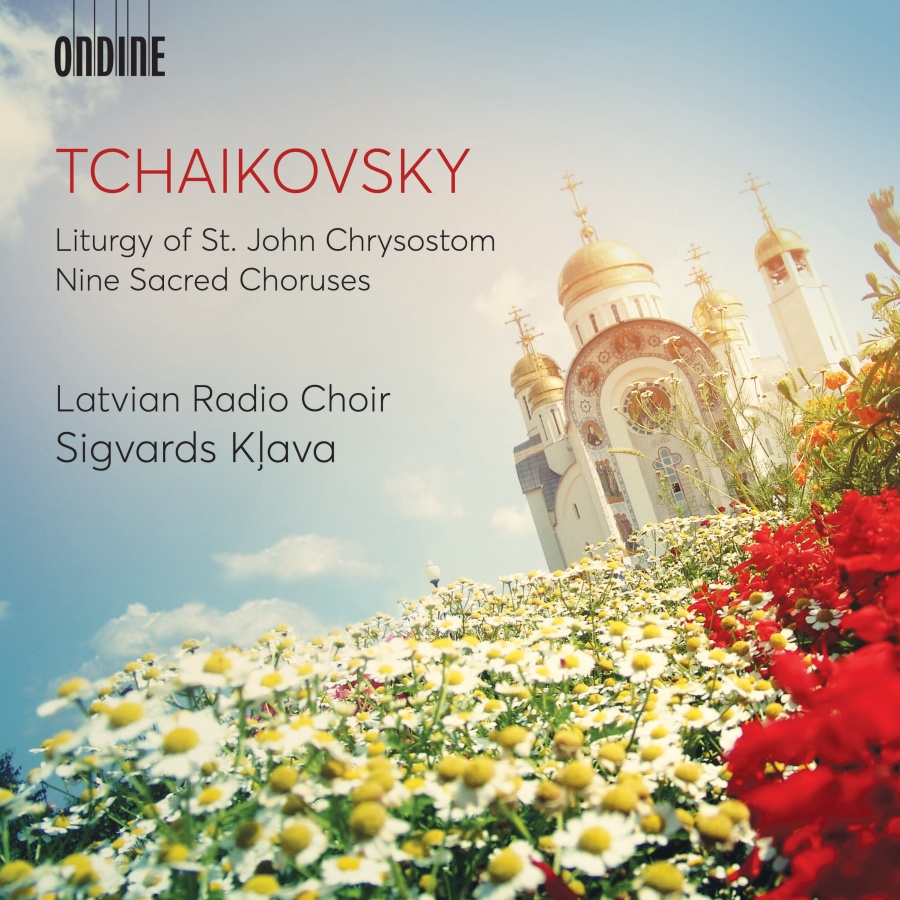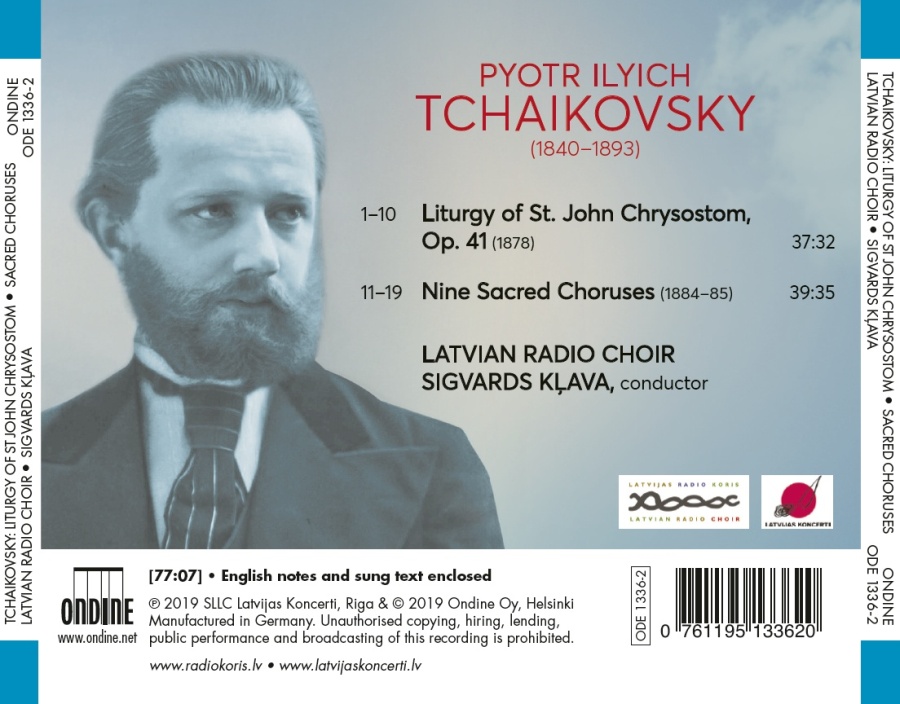
kompozytor
Tchaikovsky, Piotr
tytuł
Tchaikovsky: Liturgy of St. John Chrysostom; Nine Sacred Choruses
wykonawcy
Latvian Radio Choir;
Klava, Sigvards
Klava, Sigvards
nr katalogowy
ODE 1336-2
opis
During the last decade, the recordings of sacred vocal works released on Ondine by the Latvian Radio Choir under their director Sigvards K ava have gathered outstanding reviews and gathered several awards. This impressive cycle of recordings continue with a new album of Pyotr Tchaikovsky’s (1840–1893) sacred works. • In 1877, Tchaikovsky wrote in a letter to Nadezhda von Meck: “I often go to the public worship; in my opinion, the liturgy of St. John Chrysostom is one of the greatest works of art… Oh, I love all that terribly, it is one of my greatest pleasures.” Tchaikovsky enjoyed attending worship services, visited them regularly and always showed interest in sacred music, especially in the music of the Orthodox Church. Already relatively early in his career, in 1875, he issued “A short textbook of harmony, adapted to the reading of spiritual and musical compositions in Russia”, which in 1881 was approved as a textbook of church singing in theological seminaries and colleges. The same year, Tchaikovsky started editing the works of Dmitry Bortnyansky, a pioneer of sacred Orthodox music. However, he encountered problems with various institutions – the Imperial Chapel, the censorship authorities, as well as some conservative church officials who were more comfortable with smaller-caliber composers to whom they could have more authority when needed. Tchaikovsky wished to reform sacred Orthodox music but at the same to draw inspiration from the traditions of past centuries. Prime example of this is Tchaikovsky’s monumental work in sacred Orthodox music, the Liturgy of St. John Chrysostom, Op. 41. The Nine Sacred Choruses were written some years later. This work is not a cycle in the basic meaning of the word, but rather a collection, and another affirmation of Tchaikovsky’s skills as one of the greatest composers of Orthodox sacred music.
nośnik
CD
gatunek
Muzyka klasyczna
producent
Ondine
data wydania
03-06-2019
EAN / kod kreskowy
0761195133620
Produkt nagrodzony:
American Record Guide: 'Critic’s Choice' (2021)
Gramophone: 'Gramophone Choice' (2019)
ICMA 'Award: Choral' (2019)

(Produkt nie został jeszcze oceniony)
cena 75,00 zł
lubProdukt na zamówienie
Wysyłka ustalana indywidualnie.
Darmowa wysyłka dla zamówień powyżej 300 zł!
Darmowy kurier dla zamówień powyżej 500 zł!
sprawdź koszty wysyłki













































